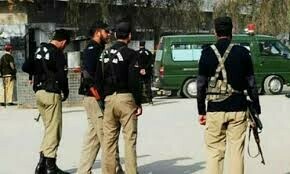The session on ‘Feminism and Global Politics’ in the LLF 2016 comprised four women, namely Anita Anand, Dina Siddiqi, Mona Eltahawy. It was moderated by Rachel Holmes.
Mona Eltahawy declared herself as ‘self-proclaimed global feminist’ and talked about how the same men who marched alongside women during the Arab Spring against oppression and dictatorships in Bahrain, Tunisia, Egypt and Libya did not stand up for gender equality, especially in their treatment towards women at home.
“Women face oppression in the streets, at home as well as from the state,” she said.
Ms Eltahawy asked all the religious brotherhoods around the world like the Muslim Brotherhood and Christian Brotherhood to stop using religion to target women.
Dina Siddiqi said ‘not all forms of feminism are innocent’ giving examples from international politics. She said it was rather important to teach men a code of conduct to stop violence against women.
Anita Anand talked about Princess Sophia Duleep Singh, the granddaughter of Maharaja Ranjit Singh, and that how from being a privileged socialite in England, she became an activist after visiting Lahore and discovering her roots.
With reference to her book, Sophia: Princess, Suffragette, Revolutionary’ she said Sophia stood for rights of white women in the UK where women were oppressed at that time.
Ms Anand invited all men to become feminists as it meant standing up for a ‘better or more just world’.
One of the other well-attended sessions of the day was ‘Friends, Not Masters? post-Obama US-Pakistan equation’.
The panel for the session included Sherry Rehman, Steve Coll, Shuja Nawaz and was moderated by Fahd Husain.
Sherry Rehman said there was huge knowledge deficiency between Pakistan and US which needed to be overcome before a proper relationship was established between the two states.
Shuja Nawaz said if Pakistan wanted to be an independent state, it needed to stop looking towards the US for help because it was not the US’s responsibility to run the country. He gave the example of how the aid received was never utilised in an effective manner.
Steve Coll was relatively optimistic and said although the relationship between the US and Pakistan had been unsteady in the last five to six years, it was a good sign both countries were willing to ‘reset’ the relationship for the betterment.
Published in Dawn, February 21st, 2016














































Dear visitor, the comments section is undergoing an overhaul and will return soon.